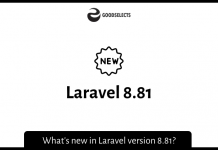When it comes to search engines, there are many options to choose from. However, not all of them are made equal, so you should take the time to choose the right ones for your needs. Google is probably the best known search engine, but there are many others as well. Yandex, Gibiru, SimilarSiteSearch, and others have their own unique strengths and weaknesses.
Google is widely regarded as one of the best search engines and is used by people across the world. Its algorithm is much more sophisticated than that of other search engines, which means that it should be able to return more relevant results. It also continually updates its algorithm to reflect ever-changing digital behaviour. Its index is also the most extensive on the market, and it has an excellent selection of tools. It also has specialized platforms for developers and SEO experts.
Google is one of the most popular search engines in the world and is particularly useful to university students, who are frequently overwhelmed by reading materials and assignments. All you have to do is type a keyword into Google’s search bar and you’ll be presented with an endless list of links to relevant websites and information. It also provides specialized search experiences, such as weather forecasts, package tracking, flight status, and word definitions.
Yandex
Yandex is one of the most popular search engines in Russia and several other countries around the world. It ranks well in general searches, but it also varies based on the language used to perform searches. Although it is not as popular as Google, Yandex is still among the top search engines in many countries.
Yandex is different from Google in some ways, but its main goal remains the same: to offer users the best possible search results and a great experience. Content is key to achieving this. Sites with great copy and a compelling user experience tend to have the highest engagement with Yandex users.
SimilarSiteSearch
SimilarSiteSearch is a search engine that makes it easier to find websites that are similar to yours. This search engine uses computer analysis and community recommendations to find similar websites. It works on web pages and images and is powered by Google. In addition, it has a black background theme, which reduces energy usage.
SimilarSiteSearch uses a huge database of websites to create an excellent list of similar sites. The search engine crawls the web for new sites and updates its list regularly. It also uses machine learning algorithms to determine the similarities between websites.
Gibiru
The Gibiru search engine is a free alternative to Google and other popular search engines. It has a reputation for anonymity and uses 256-bit encryption for your security. You can also combine it with a separate VPN or proxy app to keep websites from tracking your IP address. However, Gibiru is not without its problems. There’s very little information available about the company and its founder, Steven Ray Marshall. Its management is sometimes rough, and you should be extra careful to set up a VPN or proxy before using it.
The Gibiru search engine offers a variety of features. Users can use it on mobile devices and it offers a cleaner interface than Google. It also has a reputation for promoting websites that are not mainstream. Its tagline, “unfiltered and private,” says it all. This means that no one can track your searches, and your searches are also permanently deleted within seconds.
Qwant
If you’re looking for a search engine that is a little different from Google, try Qwant. This new search engine uses Microsoft Bing’s ad network to bring you targeted ads. It’s also kid-friendly and offers a range of social media features. You can customize your searches using Qwant’s categories, including music, videos, news, and boards.
Qwant has a number of features to keep your privacy and protect your online data. Unlike Google, it doesn’t store any of your data on its servers or sell it. It also doesn’t include a tracker on your browser. While this is good news, there are some downsides.
Infinity Search
Infinity Search is a privacy-oriented search engine that promises to keep your search results private. It uses a variety of indexes instead of relying solely on external sources to provide you with relevant results. It has built-in integrations with useful apps and an HTML editor, and it sources results from many different websites. Users can also add their own resources to the sidebar to refine their search results.
Other notable features of Infinity Search include customization options and a Chrome extension. Unlike other search engines, this open source project does not log your search history or track your every move. Moreover, it enables you to use Coil monetization to support sites directly. It also allows you to blacklist specific websites.
DuckDuckGo
The search engine DuckDuckGo displays advertisements at the top and bottom of SERPs. These ads vary depending on the keyword, search volume, and competition for the keyword. Users can also opt to see a Knowledge Panel on Page 1. It uses crowdsourcing sites such as Wikipedia to compile results. It also displays information about entities in its results.
Although the search engine has few users compared to Google, it is gaining popularity. The search engine is still new and does not have the resources of Google and Yandex. However, it is rapidly growing. It has an estimated 80 million active users by November 2020.









































